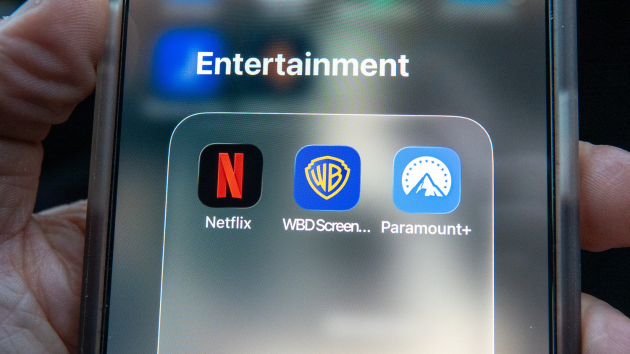Is it too late to join the bull market? Experts weigh in.
Written by ABC Audio All Rights Reserved on May 20, 2024

(NEW YORK) — The blazing hot stock market seems to set new records just about every day.
The Dow Jones Industrial Average stands above 40,000 for the first time in history, after climbing nearly 20% since October. Over that period, the S&P 500 and the Nasdaq have each soared even higher, climbing 23% and 27% respectively.
The market rally means a windfall for people with stock holdings but it poses a quandary for those on the sidelines: Is it time to jump in or too late to reap the gains?
Experts who spoke to ABC News encouraged investors to take advantage of the market upswing, saying the major indexes have room to rise even further.
The confidence stems from the nation’s sunny economic outlook, they added, as the Federal Reserve stands poised to make interest rate cuts that could boost an already robust economy. However, they cautioned, stubborn inflation or an economic downturn could bring losses.
“This is a pretty awesome environment to own stocks in right now,” Tom Essaye, president of financial data firm Sevens Report Research, told ABC News. “There is still time to get in.”
The economy is performing well on many key metrics. Unemployment stands near a 65-year low, while economic growth has remained solid and consumer spending has shown resilience.
All of these positive indicators have added up to strong corporate profits, the lifeblood of the stock market. “Growth is good and corporate earnings are good,” Essaye said.
Strong stock market performance, however, depends on where company results and economic output are headed rather than where they stand at the present time, experts said.
Fortunately, many observers hold an optimistic outlook about the coming months, since the Fed appears to be on the verge of interest rate cuts that could deliver a jolt to the economy.
In recent months, the Fed had all but abandoned its previous forecast of three quarter-point rate cuts this year. But a slowdown of price hikes offered hope of rekindling those plans.
Inflation data released last week showed that price increases slowed slightly from the annual rate recorded in the previous month, ending a surge of inflation that stretched back to the beginning of 2024.
“Front and center is what the Fed is going to do,” Marc Dizard, chief investment strategist at PNC Asset Management Group. “There is a bias here that they want to cut rates, which the market is really liking.”
Optimism about the stock market also owes to enthusiasm about the impact of artificial intelligence, experts said.
Major stock indexes drew a bump in recent months from investors favorable toward the newly prominent technology. Those gains were concentrated primarily in a handful of tech giants, known as the so-called “Magnificent 7”: Alphabet, Amazon, Apple, Meta, Microsoft, Tesla and Nvidia.
Shares of Nvidia have climbed nearly 120% since October; Microsoft has jumped almost 35% over that period.
Ed Yardeni, the president of market advisory firm Yardeni Research and former chief investment strategist at Deutsche Bank’s U.S. equities division, said adoption of AI in the coming months and years would help grow the economy and send the stock market higher.
“The market is right to get excited about technological innovations like artificial intelligence, robotics and automation,” Yardeni said. “I think those technologies will boost productivity and productivity boosts real economic growth.”
Dizard, of PNC, said the stock market retains the capacity to rise between 5% and 8%. While Essaye, of Sevens Report Research, said the S&P 500 could increase another 3% or more.
Meanwhile, Yardeni offered a longer-term view, saying he expects the major stock indexes to climb 50% by 2030.
Still, the experts warned of potential outcomes that could not only blunt future gains but incur significant losses.
Stubborn inflation could force the Fed to shift its posture, holding rates elevated for longer than expected or even raising them altogether.
“You could see a curveball,” Dizard said. “That’s something investors need to be cautious about.”
Some economic indicators, meanwhile, have already shown signs of a slowdown. The labor market has continued to add jobs this year but at a slower pace than 2023. The economy grew at the outset of 2024 but cooled off from the final stretch of last year.
“An economic slowdown is the number one thing everybody has to worry about,” Essaye said, predicting that such an outcome could bring a market decline of 10% or more.
Even after noting risks, Dizard struck a positive note. “There is momentum to the upside,” he said.
Copyright © 2024, ABC Audio. All rights reserved.

 KVSP
KVSP 





